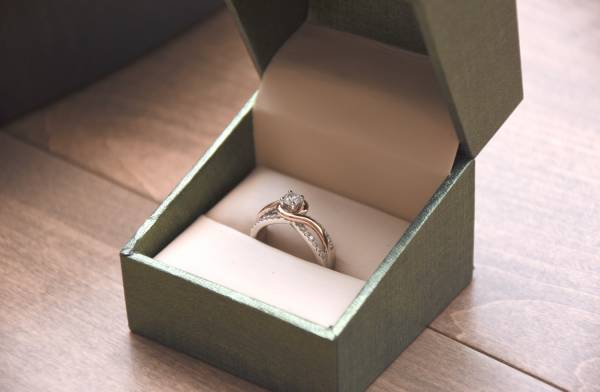Engagement Rings: Is it a Gift or Can You Get it back?

Author: Vancouver Family Lawyer Matthew Katsionis
The engagement ring, a symbol of love and the sign that it is time to book that wedding date! You received this fantastic, sparkly, expensive gift from your partner and all signs point to a long happy life together. However, tragedy strikes and the engagement is called off. Who gets that expensive ring?
We often get asked, who gets to keep the engagement ring upon separation? Most people conclude that it is a gift from the proposing partner and as a gift it does not have to be returned. Gifts are usually treated this way at law and people generally do not expect that gifts will ever be returned; what would a gift be if treated otherwise. However, in family law, for this particular situation, the engagement ring is treated differently. In British Columbia, the law is well settled in this area.
Before Marriage
If the engagement is called off and you and your partner ultimately do not get married, the ring must be returned back to the person that gave it to you, even if you were in a common law relationship at the time. The engagement ring is a special kind of gift; it is not considered a “gift” in the traditional sense but rather a conditional gift. An engagement ring is gifted based on the expectation of marriage and therefore it is conditional on the marriage actually occurring. Therefore, to keep it you must get married.
After Marriage
After marriage, if you were the one who was proposed to and presented with the ring then you get to keep it after separation and divorce. This is because you met the condition associated with the gift of the engagement ring by getting married.
Typically, assets accumulated during the marriage are divided 50-50 if there is a separation. However, there is no equalization of the engagement ring and the spouse who gifted the ring does not get back 50% of its value.
Are there Exceptions?
The exceptions are far and few between in the family law cases. The court will look at the intention of the proposing party. Was there intent beyond the proposal that the receiving party could keep the engagement ring? For example, in one court case the “proposer” said in writing to keep the engagement ring and then tried to take it back. The statement, and actions indicating that the recipient keep the engagement ring constituted what the court called an “absolute gift.” This differs from the condition discussed earlier. In that case the court allowed the recipient to keep the ring. Another exception is when the recipient actually paid for their own engagement ring.
Most people fall into the “condition” category and the ring needs to be returned. However, if you are in a common law relationship and you separate, other issues may also arise separate from the engagement ring. If you have any questions, the Vancouver family lawyers at Crossroads Law can provide you with a consultation.